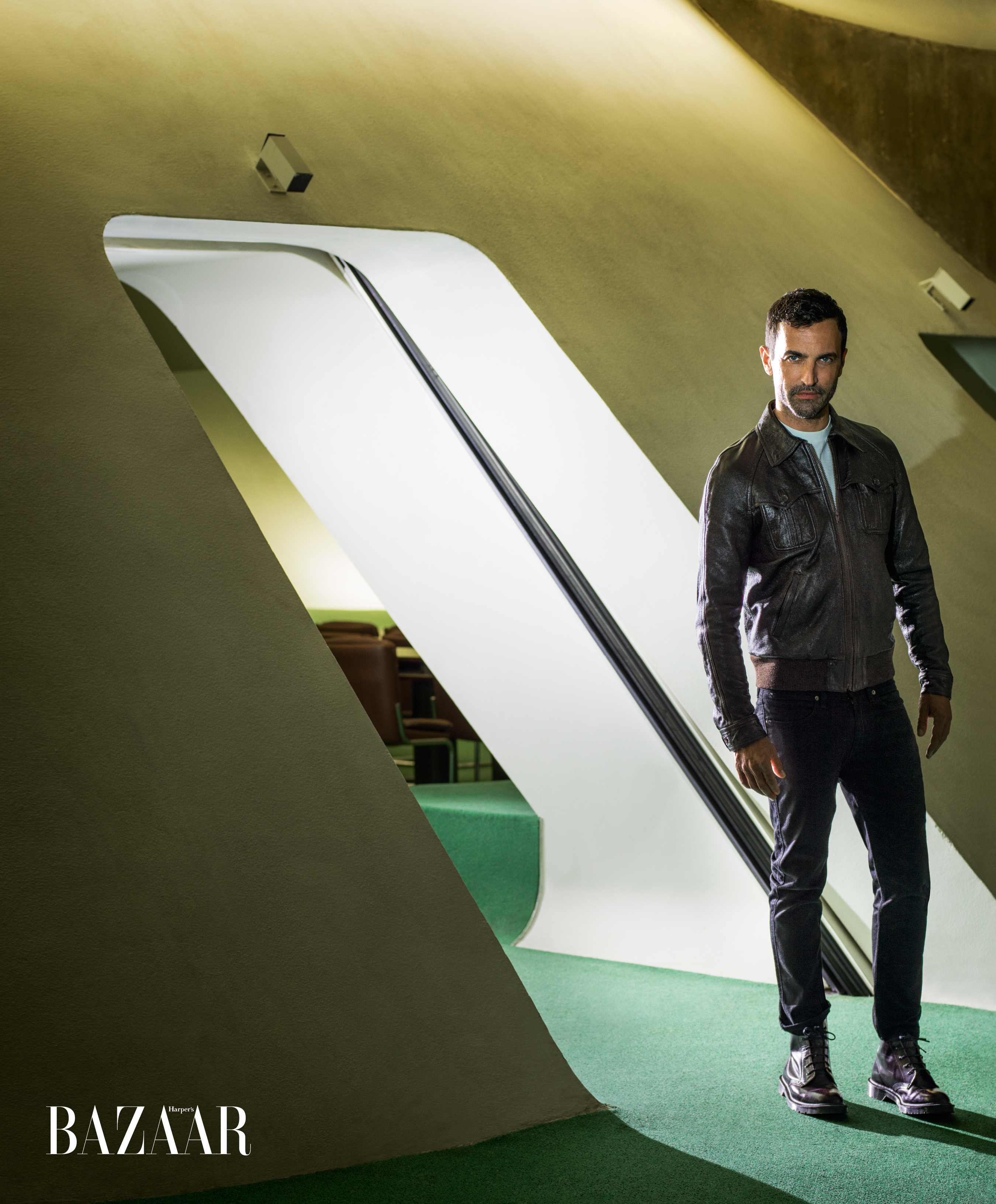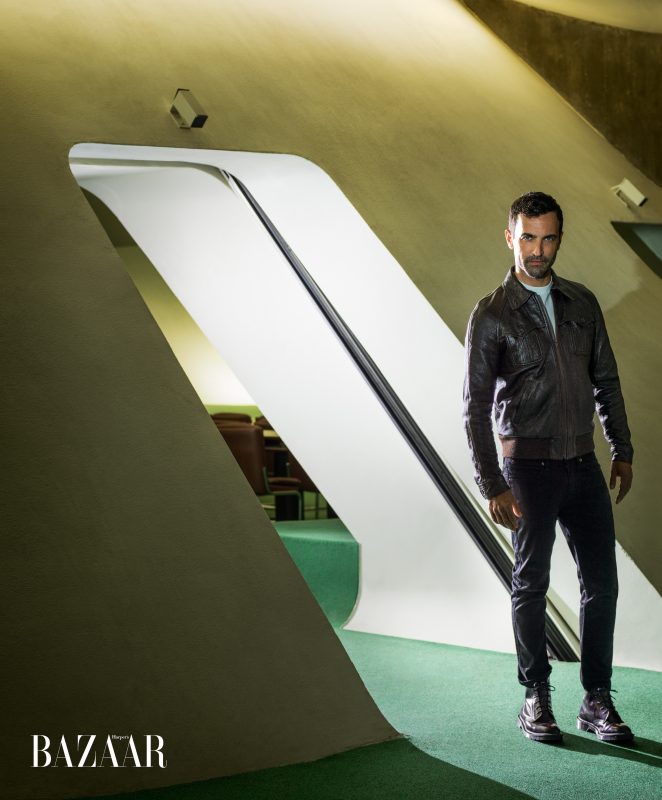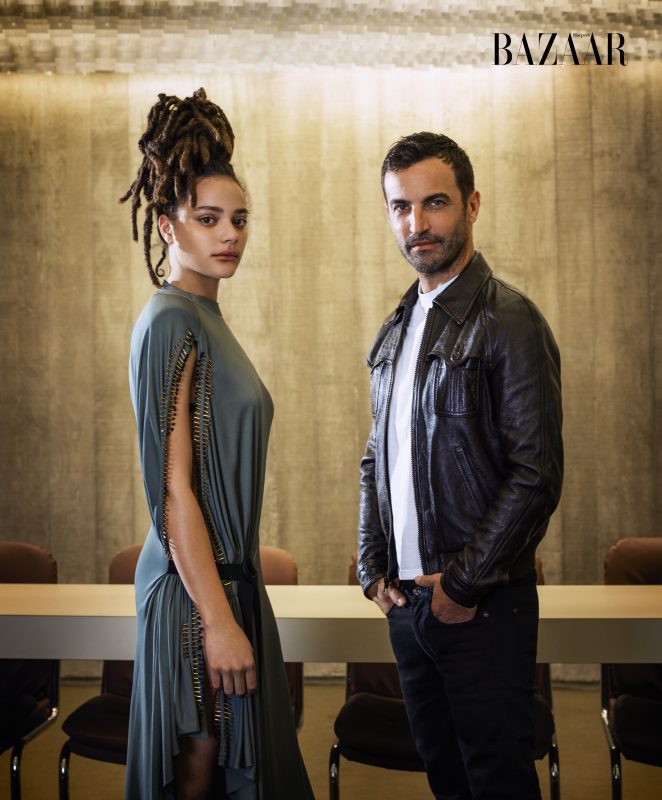- With Sasha Lane, one of the faces of the Spring 2017 campaign
In its April issue, Harper’s BAZAAR gives a glimpse into the life of Louis Vuitton artistic director Nicolas Ghesquière. Contributor Andrew O’Hagan touches on everything from his walk (“it so happens that Nicolas Ghesquière doesn’t so much walk into the room, he rolls in, a ball of energy and openness”) to his office space (“bigger than Karl Lagerfeld’s at Chanel, nicer than Sarah Burton’s at Alexander McQueen, whiter than Mrs. Prada’s”) and more. Below, a few excerpts from the interview with the creative mastermind; read the full feature HERE.
On his muses at Louis Vuitton: Sasha Lane, Rila Fukushima, Catherine Deneuve, and Léa Seydoux…
“These girls are not scared. They don’t just want to wear a boring dress on every red carpet.”
On designing for women as getting older…
“As a woman gets older, it’s more about style than fashion. A woman knowing herself more and more, and looking for new things, is getting into her own personal style, being more than just a fashion addict. I’m interested in that.”
On his space-age like collections…
“I’ve always believed in a creative dimension. It is where we go. The parallel world more often has to do with anticipation than anything else.”
On resurrecting Balenciaga…
“It was a transmission; I was carrying on for someone. I probably underestimated how difficult it was. You just go for it at age 25, and the context allowed my determination to work. I am proud of it. I take responsibility for having put Balenciaga back on the map, with integrity.”
On the legal dispute when he left Balenciaga in 2012…
“It was quite confusing, to be honest with you. I got lost in that. Sometimes I thought the company was me, it was mine, it was not a heritage, we were the same object, we shared the same DNA. Then I realized I was wrong: It’s a marriage that can fail. I was happy but suffering too, not sure whether I was trapped or free.”
On the idea of home…
“Paris is home, but home is also a nostalgia for adolescence. It is a fantasy, out of proportion. It’s a very good way of seeing it. And there’s an addiction now of traveling, of having a different experience. I don’t like to go home anymore to the home of my childhood because, you know, it’s a place I will never find again. Even if it’s there.”




